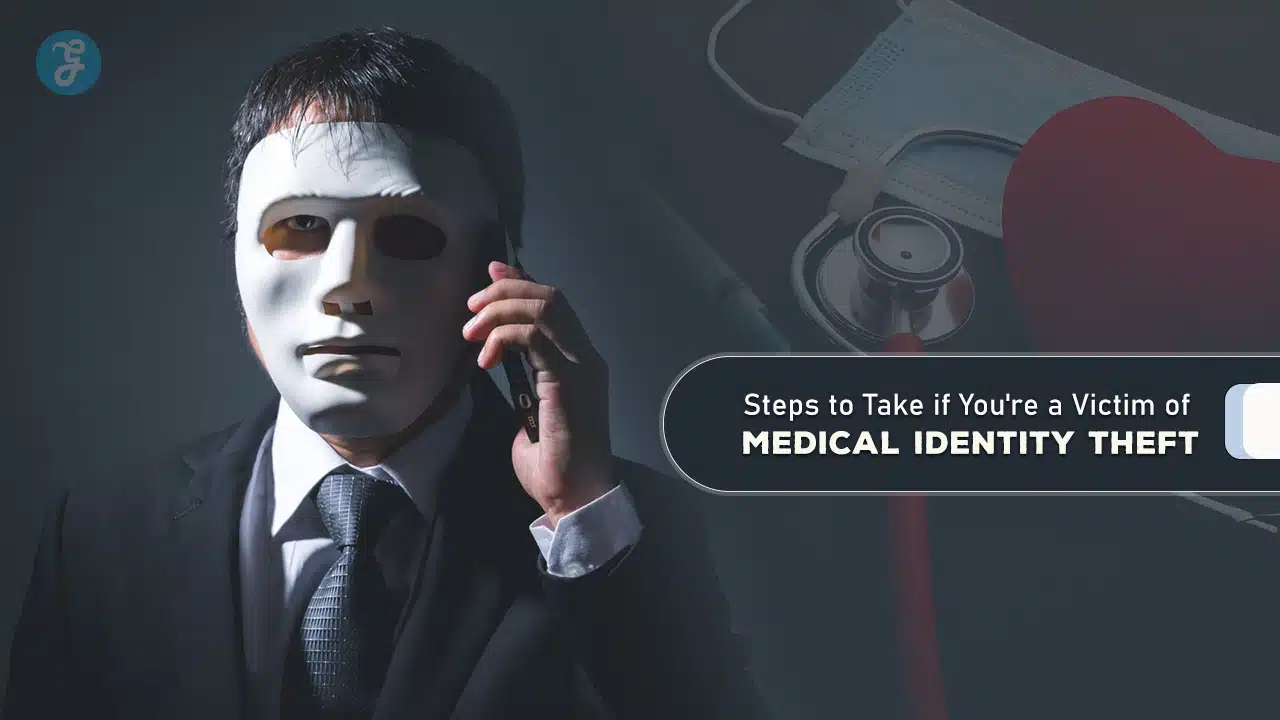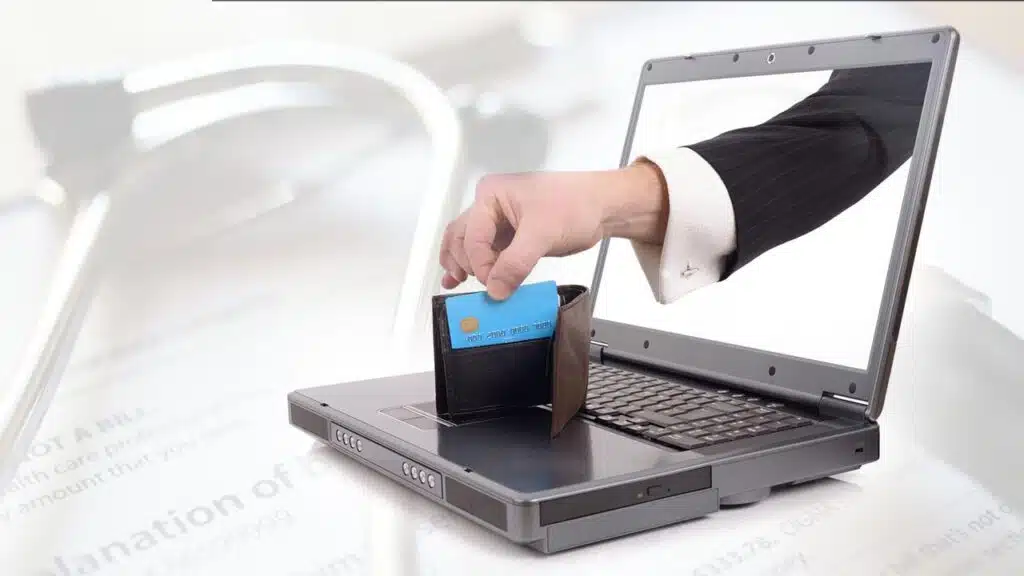Medical identity theft is a growing and serious problem where someone fraudulently uses your personal information—such as your name, Social Security number, or health insurance details—to obtain medical services, prescriptions, or medical insurance benefits.
It can lead to incorrect medical records, unauthorized charges, and even legal and financial complications.
If you suspect or know that you’ve become a victim of medical identity theft, acting quickly and methodically can help minimize the damage.
In this detailed guide, we’ll outline the 7 critical steps you should take if you become a victim of medical identity theft, helping you protect your health, finances, and personal information.
1. Review Your Medical Records and Bills Thoroughly
Why It’s Important
The first sign of medical identity theft often appears as suspicious medical bills or discrepancies in your medical records.
Reviewing these documents helps you identify unauthorized charges or treatments and serves as evidence when disputing fraudulent activity.
How to Do It
- Request a Copy of Your Medical Records:
Contact your healthcare providers and request copies of your medical records, including hospital visits, treatments, and prescriptions.
You are legally entitled to access your medical records under the Health Insurance Portability and Accountability Act (HIPAA).
- Check Your Explanation of Benefits (EOB) Statements:
Review your insurance statements for services or treatments you didn’t receive.
These statements list what services your insurance has paid for, and any unfamiliar entries should be flagged.
- Identify Errors and Discrepancies:
Compare your actual medical history with what’s in your records.
Look for unfamiliar diagnoses, treatments, or medical procedures.
Document any unauthorized charges or services.
Key Takeaway
Identifying fraudulent charges or treatments early on can prevent further misuse of your identity and make it easier to correct false information in your medical records.
2. Contact Your Healthcare Providers and Insurance Company
Why It’s Important
Once you’ve identified suspicious activity, it’s critical to notify your healthcare providers and insurance company immediately.
Informing them helps prevent further unauthorized use of your medical identity and starts the process of correcting your records.
How to Do It
- Call Your Healthcare Providers:
Inform your doctors, hospitals, or clinics about the unauthorized services.
Request they flag your records and notate any fraudulent activity, so future healthcare professionals are aware of possible discrepancies.
- Notify Your Health Insurance Company:
Call your insurance provider to report the fraud.
They can place a fraud alert on your account to prevent further charges and assist in investigating the issue.
- File a Dispute for Unauthorized Charges
For any services billed to your insurance that you didn’t receive, file a formal dispute with your insurance company. Make sure to keep detailed records of all communications.
Key Takeaway
Notifying your healthcare providers and insurance company immediately helps contain the damage and begins the process of investigating and correcting the fraudulent activity.
3. File a Report with the Federal Trade Commission (FTC)
Why It’s Important
Filing a report with the Federal Trade Commission (FTC) establishes an official record of the identity theft, which can be essential when disputing fraudulent medical claims or clearing your name with healthcare providers and insurers.
How to Do It
- Go to IdentityTheft.gov:
Visit the FTC’s official identity theft reporting website, IdentityTheft.gov, and complete the online form detailing your medical identity theft case.
- Create an Identity Theft Report:
After submitting the necessary information, the website will generate a personalized recovery plan and an official Identity Theft Report, which you can use as evidence when working with healthcare providers and insurance companies.
- Follow the FTC’s Recommended Actions:
The report will guide you through the next steps, which may include placing a fraud alert on your credit file or disputing charges with your health insurance provider.
Key Takeaway
Filing a report with the FTC not only creates a legal record of the theft but also helps you with the process of recovery by providing step-by-step guidance tailored to your situation.
4. File a Police Report
Why It’s Important
Filing a police report can provide additional documentation that may be necessary when dealing with fraudulent medical claims, insurance disputes, or correcting your medical records.
A police report serves as legal proof that you are a victim of a crime.
How to Do It
- Visit Your Local Police Department:
Bring copies of your FTC Identity Theft Report, any suspicious medical bills or records, and a government-issued ID when filing your report.
- Provide Detailed Information:
Explain the medical identity theft in detail, including dates, unauthorized charges, and any other relevant information.
- Request a Copy of the Police Report:
Keep a copy of the police report for your records.
You may need to provide this document to insurance companies or healthcare providers to support your claims.
Key Takeaway
A police report can strengthen your case when disputing fraudulent medical charges and help you take legal action against the perpetrators if needed.
5. Place a Fraud Alert and Consider Freezing Your Credit
Why It’s Important
Medical identity theft often involves stealing personal information like Social Security numbers, which can also be used to open fraudulent credit accounts.
Placing a fraud alert or freezing your credit helps prevent further financial damage.
How to Do It
- Place a Fraud Alert:
Contact one of the three major credit reporting agencies—Equifax, Experian, or TransUnion—to place a fraud alert on your credit report.
This will make it harder for identity thieves to open new accounts in your name. When you place an alert with one agency, they will notify the other two.
- Consider Freezing Your Credit:
If you’re concerned about further identity theft, you can take the additional step of freezing your credit.
This prevents anyone (including you) from opening new accounts in your name until you lift the freeze. You must request a freeze separately from each of the three credit bureaus.
Key Takeaway
Fraud alerts and credit freezes are crucial in preventing further misuse of your identity, especially if your medical identity theft involved sensitive personal information like your Social Security number.
6. Correct Your Medical Records
Why It’s Important
Medical identity theft can lead to incorrect or fraudulent entries in your medical records, such as incorrect diagnoses or treatments.
These inaccuracies could pose serious risks to your health if future treatments are based on false information. Correcting your medical records ensures your health history is accurate.
How to Do It
- Contact the Healthcare Providers Involved:
Reach out to the healthcare providers where the fraudulent activity occurred and request that the incorrect information be removed from your records.
- Submit a Request for Amendment:
Under HIPAA, you have the right to request an amendment to your medical records.
Send a written request to your healthcare provider, specifying the errors and providing supporting documentation such as your FTC Identity Theft Report or police report.
- Follow Up:
Healthcare providers have a legal obligation to respond to your request for an amendment within 60 days.
Follow up to ensure that the necessary corrections are made.
Key Takeaway
Ensuring the accuracy of your medical records is crucial for your health and safety.
Taking proactive steps to correct any errors can prevent future complications and ensure that your medical history reflects only legitimate treatments.
7. Monitor Your Accounts and Health Insurance Regularly
Why It’s Important
Even after resolving the immediate issues, medical identity theft can have long-lasting effects.
Ongoing monitoring of your accounts, health insurance statements, and credit reports is essential to catch any further unauthorized activity or errors.
How to Do It
- Check Health Insurance Statements Regularly:
Continue reviewing your Explanation of Benefits (EOB) statements and any bills from healthcare providers to ensure there are no new fraudulent charges.
- Monitor Your Credit Reports:
Keep an eye on your credit reports through annualcreditreport.com or use a credit monitoring service.
This will help you catch any suspicious activity that might be related to your stolen identity.
- Set Up Alerts:
Many health insurance companies and financial institutions offer account alerts that notify you of any unusual activity, such as a new medical claim or change to your personal information.
Set up these alerts for added security.
Key Takeaway
Ongoing vigilance is essential to protect yourself from any further incidents of medical identity theft.
Regular monitoring ensures that you can catch new fraud quickly and minimize any potential damage.
Conclusion
Medical identity theft is a serious issue that can have far-reaching consequences on your health, finances, and personal records.
If you become a victim, following these 7 steps—from reviewing your medical records and notifying healthcare providers to filing reports with the FTC and police—will help you address the situation effectively and restore your identity.
By staying vigilant and monitoring your accounts regularly, you can protect yourself from future incidents and regain control over your medical and financial information.








































